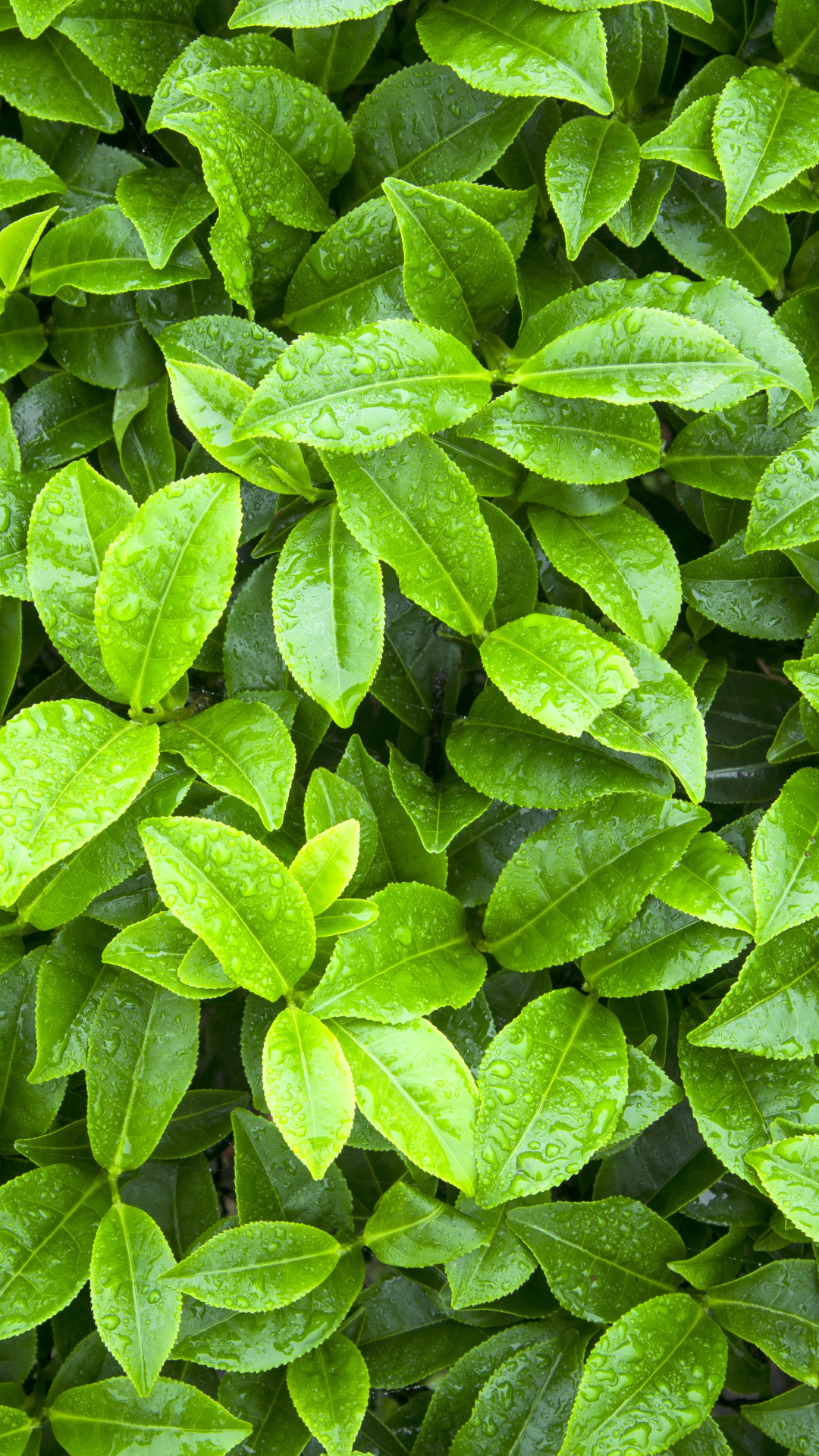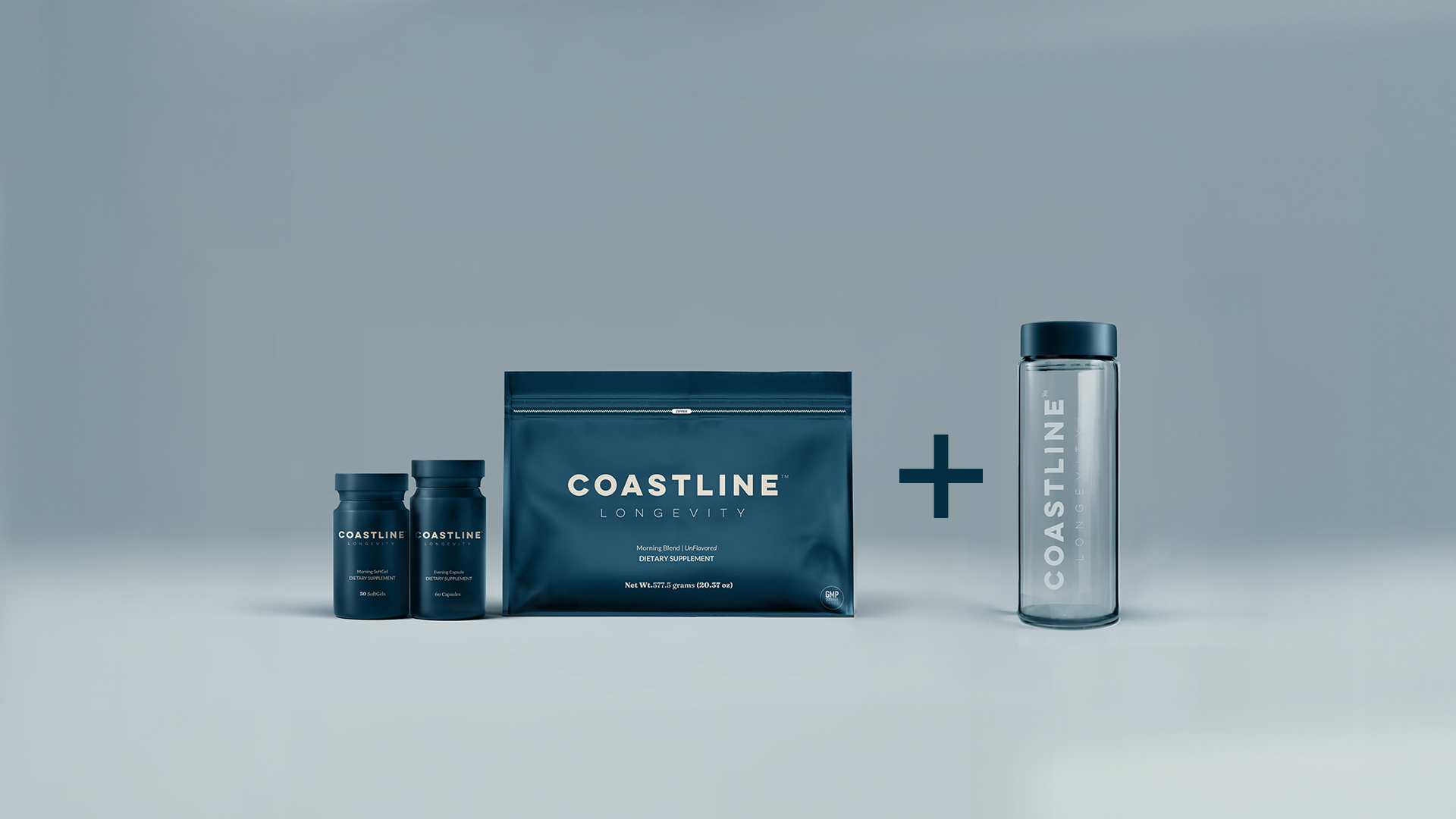
Summary
L-Theanine
What is L-theanine?
L-theanine is the most abundant amino acid in the plant (Camellia sinensis) used to make regular tea, making up nearly half of the amino acids in tea. It is also present in low amounts in some mushrooms and gives a mild umami flavour to both foods. Many of us therefore already consume quite a lot of L-theanine.
Technically, L-theanine is a “non-protein” amino acid, for it’s not one of the amino acids used as a building block to make proteins. It does, however, impart some health benefits, helping diminish stress responses and alleviate feelings of distress, improve sleep quality, and enhance some cognitive functions.
Effects of L-theanine on lifespan and healthspan
To be clear, L-theanine is not in Coastline because we think it will extend lifespan directly. However, there is actually a little evidence suggesting that it might prolong the lives of some organisms subject to certain conditions.
One of the main reasons L-theanine is in Coastline is to help regulate responses to distress, for we think that chronic stress is often upstream of reduced healthspan and possibly lifespan. With this in mind, perhaps the most relevant lifespan experiment of other animals tested whether L-theanine intake affects the life-shortening and health-eroding effects of chronic social stress in males from a mouse lineage (SAMP10) selectively bred to die at a young age from accelerated senescence. Poor mice, right? Anyway, as expected, the study showed that stress from enforced confrontation shortened lifespan, accelerated brain atrophy, amplified impairments in learning, and led to depression-like symptoms. Grim. Giving the mice a relatively modest dose of L-theanine in their water reduced these detrimental effects, however.
A few subsequent experiments on other animals support the idea that L-theanine might support lifespan. For example, an early experiment on roundworms found that L-theanine extended lifespan, including in worms exposed to paraquat, an extremely poisonous herbicide. A more recent series of experiments on worms found that L-theanine extended the lifespan of worms exposed to damaging UVC radiation. Finally, research on fruit flies found that while it didn’t extend lifespan, L-theanine did exert some other positive effects, stimulating greater physical activity and improving courtship ability. (We’re not sure that will translate to eager singletons at the bar on Friday nights though, sorry.) However, L-theanine reduced resistance to starvation in males and decreased tolerance to UV radiation in females, so the results were not unanimously positive.
Since our rationale for including L-theanine isn’t really related to direct effects on the biology of aging, we won’t go deeply into the mechanisms by which L-theanine might confer the protective effects listed above. Just to gloss over them though, the study of stressed out mice linked L-theanine’s effects to reduced oxidative damage in the brain, and the work on irradiated roundworms found that L-theanine had positive effects on mitochondria, including helping to clear dysfunctional mitochondria.
Positive effects of L-theanine on human health
While it’s likely that L-theanine contributes to some of the positive effects of tea intake on health, to explore the effects of L-theanine specifically we must turn to clinical trials of isolated L-theanine use. Putting aside studies that combine L-theanine with other bioactive ingredients (there are many of these!), here’s a brief summary of the effects of L-theanine on human health and performance.
L-theanine helps people cope with stress
Perhaps the best-studied use of L-theanine is countering stress. By 2020, there had been nine placebo-controlled studies on this subject. These studies assessed a range of relevant outcomes, including feelings of anxiety and/or stress and physiological markers of stress such as heart rate and its beat-to-beat variability, blood pressure, skin temperature, and saliva levels of the stress hormone cortisol. A review of these data concluded that consuming 200 to 400 mg L-theanine consistently reduces stress and anxiety responses in people exposed to challenging conditions.
It's worth noting that this calming effect of L-theanine isn’t just helpful for psychology — the effects of stress on health can be remarkably far-reaching. As an example, in the face of stress, L-theanine might be good for cardiovascular health. Indeed, L-theanine can curb increases in blood pressure during mentally challenging tasks among people with the largest blood pressure increases. L-theanine’s attenuation of rising blood pressure is also evident when it is taken with caffeine, which tends to increase blood pressure. Similarly, L-theanine might support immune function during some types of stress. In one study, elite rowers took 150 mg L-theanine per day while training hard for 6 weeks. The researchers then assessed their immune responses to a bout of rowing. The authors focused on the balance of a subset of cells (“CD4+ cells”) in the branch of the immune system that helps the body cope with novel pathogens (adaptive immunity). They interpreted the effects of L-theanine on immune responses to exercise as being broadly positive, but it’s not really possible to determine whether the changes were clinically meaningful — we don’t know if they would have led to a change in incidence of infections over time, for example. Mechanistically, L-theanine is thought to support immune function by acting as a substrate for the synthesis of glutathione, a key antioxidant. This is why some research has combined L-theanine with cysteine, another glutathione precursor.
L-theanine supports sleep health and cognitive function
Nowadays, various forms of stress erode sleep. If L-theanine helps people cope with stress, we might expect it to improve sleep. This indeed seems to be the case. Studies of a variety of populations have all reported that regular L-theanine intake enhances sleep quality, and a recent meta-analysis collated results from many studies of L-theanine and sleep, finding that when people take L-theanine they report falling asleep faster, feeling that their overall sleep quality is better, and finding that they function better while awake.
To hone in on a few specific examples spanning several populations, in 8- to 12-year-old boys with ADHD, 200 mg L-theanine per day improved sleep efficiency, an objective measure of sleep quality. Next, 450 to 900 mg L-theanine per day increased sleep satisfaction in adults taking antidepressants for generalised anxiety disorder. In a study of people with schizophrenia, 250 mg L-theanine per day boosted sleep quality scores and mood. And there’s evidence that L-theanine can nullify negative effects of caffeine on sleep, for 50 mg L-theanine offset the effects of 30 mg caffeine on sleep in non-caffeine consumers. This study backs up one of the reasons we think L-theanine is a fine sleep aid for the general population: caffeine can hamper sleep, and most of us consume a substantial amount of caffeine. In a study of average beverage caffeine intake in US adults, caffeine intake ranged from 122 mg per day in 18- to 24-year-old adults to 226 mg per day in 50 to 64-year-old adults. And remember this is just an analysis of drinks — there’s also caffeine in some foods, which can add up if you’re a dark-chocolate fiend!
Of all research published, this study of L-theanine’s effects on stress, cognition, and is arguably most relevant to our use case. The participants (ages, health status) were similar to many of our users, and the outcomes assessed are very relevant to why we chose L-theanine for Coastline. In it, relatively healthy men and women took either placebo or 200 mg L-theanine shortly before sleep each night for 4 weeks. L-theanine improved self-rated depression, anxiety, and sleep quality scores. Among those in the lower half of cognitive function scores, several measures of cognitive function also got better after regular L-theanine intake, which we might expect given how important sleep is for brain function.
Staying on the subject of cognition, while most of the studies of the effects of L-theanine on cognition have combined it with caffeine and there are some discrepancies between studies, there is some evidence that isolated L-theanine intake shortly before cognitive tests can acutely improve reaction time in tests of attention in healthy young adults and accuracy in tests of short-term (“working”) memory in older adults.
Precisely how L-theanine affects the function of the central nervous system isn’t clear. Some scientists have speculated that the kind of calm but non-drowsy state L-theanine can induce relates to transient changes in patterns of electrical activity in the brain. Some experiments have documented that L-theanine transiently increases a type of brainwave (“α” waves) associated with this state, but others have not.
Some of L-theanine’s effects are likely related to its actions on chemical signaling between brain cells (“neuromodulation”). L-theanine is an “analog” of L-glutamine and L-glutamate, meaning that it is structurally similar. Because of this, L-theanine seems to weakly block (“antagonise”) some glutamate receptors (AMPA, kainite, NMDA), offsetting the glutamate’s excitatory effects. It’s also possible that L-theanine activates (“agonises”) GABA(A) receptors. These changes in neuromodulation could contribute to the feelings of calmness and improvements in sleep many of us experience when taking L-theanine. Other evidence points to possible effects of L-theanine on a family of neuromodulators named the monoamines, which include serotonin, norepinephrine, and dopamine. This study found L-theanine reduced depression-like symptoms in rats experiencing chronic unpredictable stress. This was associated with increased levels of monoamines in parts of the brain involved in processes such as decision making, reasoning, self-control, fundamental biological drives, and working memory.
Our use of L-theanine
Regarding dose, Coastline contains 200 mg L-theanine, a dose that has repeatedly been shown to reduce stress responses and improve sleep quality and cognitive function.
Regarding timing, we include L-theanine in the evening step of Coastline. This is because the research showing positive effects of isolated L-theanine on sleep has provided the L-theanine shortly before sleep. Another reason is that L-theanine intake can slightly reduce cortisol levels, and we want to encourage a healthy, high-amplitude daily cortisol rhythm. This is characterised by a sharp spike that peaks around awakening at the end of sleep (the “cortisol awakening response”) and then generally wanes until a low point is reached during the following biological night. A disrupted cortisol rhythm is often evident in various diseases and disorders. If L-theanine acutely reduces cortisol in some circumstances, taking L-theanine in the evening might help favourably shape this rhythm.
Regarding form, there are “enantiomers” of theanine, a fancy way of saying there are chemical forms that are mirror images of each other. In nature, most theanine is of L-(S) variety though. Related to this, L-theanine can be isolated from tea leaves, but this method is expensive and inefficient. In contrast, using enzyme to synthesise L-theanine is more efficient and costs less. L-theanine can also be made by fermentation, but this isn’t widely practised. Coastline contains regular, synthetic L-theanine. You might have come across branded L-theanine products like Suntheanine®, which we don’t use. To be clear, Suntheanine® is a good product, it’s just not fundamentally different from other pure sources of L-theanine, which are generally cheaper. To help us keep the product price in check for you, we choose a less expensive source that is just as efficacious.
L-theanine typical dietary intakes and safety
If you drink lots of Camellia sinensis tea, you probably already consume quite a lot of L-theanine. The amount of L-theanine in a cup of tea depends on various factors, including the raw material and brewing conditions, and studies have reported L-theanine contents ranging from about 8 to 60 mg L-theanine per 200-ml cup of tea.
L-theanine is impressively safe and has remarkably low toxicity — in fact, one study failed to find any toxic effects when giving rats doses up to 4,000 mg L-theanine per kg body weight per day for 13 weeks! The US Food and Drug Administration has granted L-theanine Generally Regarded as Safe status at up to 250 mg per serving and up to 1,200 mg per day.

Order Your Coastline Welcome Pack Today
13 foundational ingredients. 1 simple system. $165 value for only $120 including FREE glass shaker.


